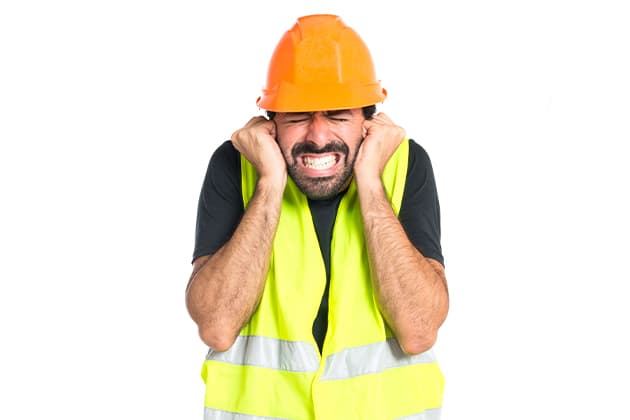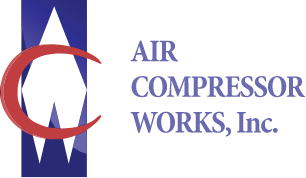Air Compressor Works
Post
Noisy Air Compressors
September 16, 2020

Compressors are inherently noisy. Before we address how to quiet them down, here are some of the noisy compressors that may be in your shop.
Small Air-Cooled Piston
Commonly used as a small shop compressor. These units have inherent mechanical noise from the pistons and fan, as well as, intake noise when pumping. Noise level can be in the 90-95 dba range.
Rotary Vane Compressors
Typically unenclosed compressors using sliding vane inside an aluminum casing that creates a high pitch sound which can be extremely annoying, as well as, painful. Noise level can be in the 85-95 dba range.
Reciprocating Water-Cooled Compressors over 50 HP
These older units are mechanically noisy, which sound like a large engine running. The highly annoying sound is the “wumpa, wumpa” compression noise sound that emits from the inlet filter and can travel through walls as well as long distances.
Open-Semi Enclosed Rotary Screw
Many open rotary screws that were built in the 70’s and 80’s had no sound attenuation due to cost reasons. The noise can be a high-pitched whine which can reach levels of 95-100 dba.
Now that we know the different types of compressors, what steps can be taken to quiet them down to make a better work environment in the plant, as well as being a better neighbor.

Here are steps that could be effective to reduce noise and meet OSHA requirements:
1. Move the compressor away from work or office area to a remote portion of the building.
2. Insulate using sound curtains or “Soundown” material on the room walls or hanging around the unit in an open area.
3. Install an inlet filter silencer on the small piston or an engineered inlet pulsation bottle on the large reciprocating compressor to minimize the inlet compression noise.
4. Pipe the inlet of the piston compressors outside to eliminate the compression noise in the building adding silencers as required in #3 so the neighbors do not complain.
5. Determine if the rotary screw can be retrofitted with a sound enclosed cabinet as an optional kit from the manufacturer.
6. Install a flex line between the compressor and main piping system to ensure that harmonics are not transmitted into the plant.
7. Duct the fan on the rotary screws outside with sound attenuation ducting to reduce fan noise in the compressor room.
OSHA requires hearing protection on any sound level environment above 90 dBA with most companies mandating protection at 85 dBA.
Most compressors built in the 80’s and early 90’s were at, or slightly above, this OSHA requirement. The steps outlined above will provide a legal and more tolerable in your work environment.
New rotary screws and even some new piston compressors have been designed for sound levels under 70 dba. This allows the compressors even to be placed adjacent to the work area and offices.
If your compressor is creating noise issues in you plant, or with your neighbors, you may want to consider replacing it with a quiet, more efficient unit that will also save on your power bill. If you have any noise issues that need to be dealt with, please contact our team at (800) 345-4364
Related Post
Contact Us
Contact Us
Palm beach:
1956 W 9th St
Riviera Beach, FL 33404
Monday – Friday 7:30 AM - 4:30 PM
Map and Directions
Miami:
7292 NW 25th St
Doral, FL 33122
Monday – Friday 7:30 AM - 4:30 PM
Map and Directions
Phone Number:
Areas We Serve
- Miami
- Fort Lauderdale
- Hollywood
- Boca Raton
- Stuart
- Vero Beach
- Delray Beach
- West Palm Beach
- Homestead
- Key West
- Fort Pierce





